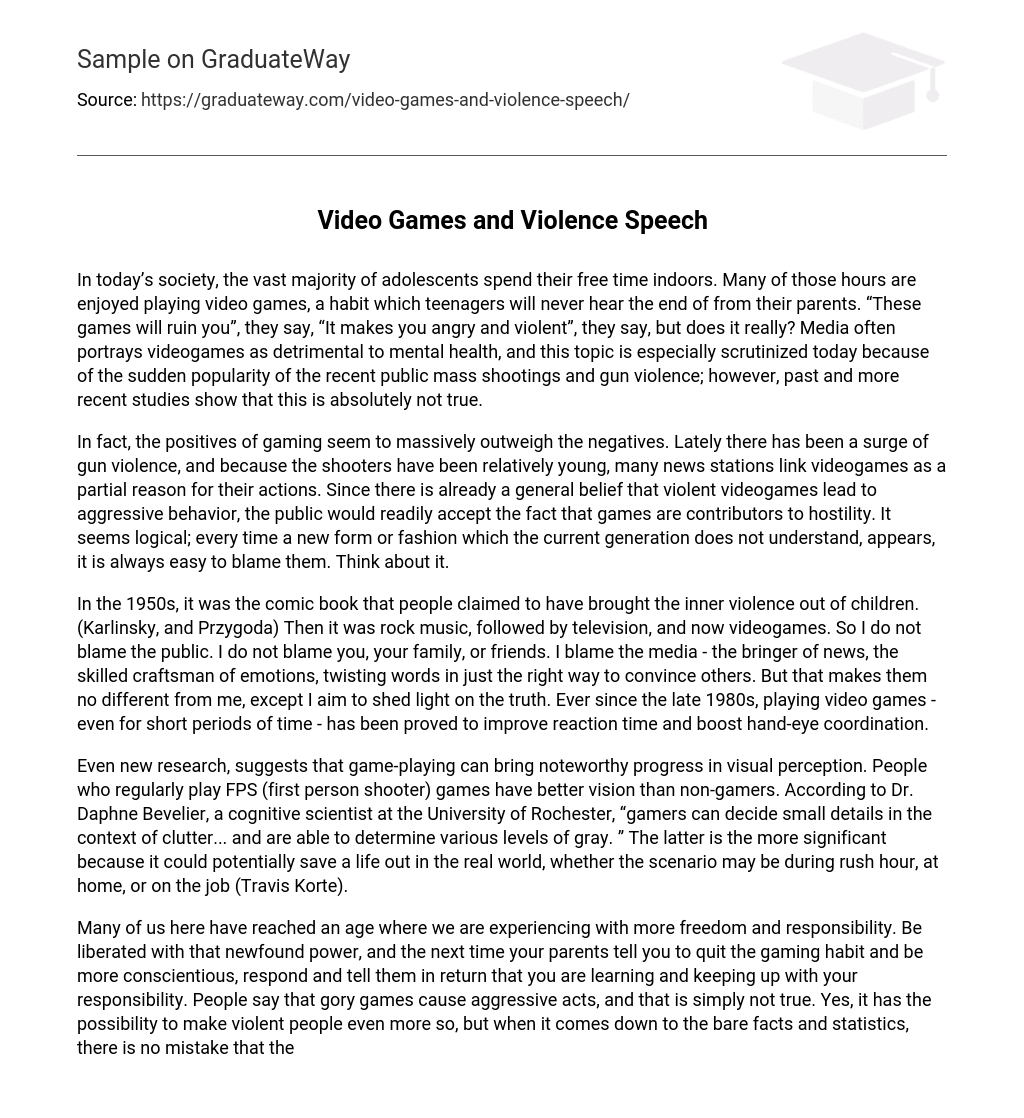In today’s society, the vast majority of adolescents spend their free time indoors. Many of those hours are enjoyed playing video games, a habit which teenagers will never hear the end of from their parents. “These games will ruin you”, they say, “It makes you angry and violent”, they say, but does it really? Media often portrays videogames as detrimental to mental health, and this topic is especially scrutinized today because of the sudden popularity of the recent public mass shootings and gun violence; however, past and more recent studies show that this is absolutely not true.
In fact, the positives of gaming seem to massively outweigh the negatives. Lately there has been a surge of gun violence, and because the shooters have been relatively young, many news stations link videogames as a partial reason for their actions. Since there is already a general belief that violent videogames lead to aggressive behavior, the public would readily accept the fact that games are contributors to hostility. It seems logical; every time a new form or fashion which the current generation does not understand, appears, it is always easy to blame them. Think about it.
In the 1950s, it was the comic book that people claimed to have brought the inner violence out of children. (Karlinsky, and Przygoda) Then it was rock music, followed by television, and now videogames. So I do not blame the public. I do not blame you, your family, or friends. I blame the media – the bringer of news, the skilled craftsman of emotions, twisting words in just the right way to convince others. But that makes them no different from me, except I aim to shed light on the truth. Ever since the late 1980s, playing video games – even for short periods of time – has been proved to improve reaction time and boost hand-eye coordination.
Even new research, suggests that game-playing can bring noteworthy progress in visual perception. People who regularly play FPS (first person shooter) games have better vision than non-gamers. According to Dr. Daphne Bevelier, a cognitive scientist at the University of Rochester, “gamers can decide small details in the context of clutter… and are able to determine various levels of gray. ” The latter is the more significant because it could potentially save a life out in the real world, whether the scenario may be during rush hour, at home, or on the job (Travis Korte).
Many of us here have reached an age where we are experiencing with more freedom and responsibility. Be liberated with that newfound power, and the next time your parents tell you to quit the gaming habit and be more conscientious, respond and tell them in return that you are learning and keeping up with your responsibility. People say that gory games cause aggressive acts, and that is simply not true. Yes, it has the possibility to make violent people even more so, but when it comes down to the bare facts and statistics, there is no mistake that the social media is portraying it in an exaggerated manner.
You see, over the years, our country’s crime rates have dropped drastically. In fact, the arrest rate for juvenile murders fell 71. 9% and the arrest rate for all juvenile violent crimes declined 49. 3% in 1995 – 2008. (procon. org) If videogames were produced to be progressively more and more gory and fearsome, why would crime rates plunge? – Unless, of course, there was no correlation between the two topics, which there definitely is not. Even through all the numerous, intense studies of videogames and violence, not a single scientist has yet to prove that these games are directly causing acts of aggression.
These studies have been occurring since the 1980s (Travis Korte). Even the Supreme Court stands by that knowledge. In 2011 when California decided to ban minors from purchasing games with mature content, the Supreme Court overruled that decision by 7:2, based on the fact that it violated our first Amendment and that the judges saw no correlation between the subjects, going so far as to state that the “connection between exposure to violent video games and harmful effects on children do not prove that such exposure causes minors to act aggressively.
Any demonstrated effects are both small and indistinguishable from effects produced by other media. ” (Suzy Khimm) In the midst of everything that is happening right now, people need a scapegoat. They need something to take all the blame, and unfortunately, videogames are just here at the wrong place and the wrong time.





